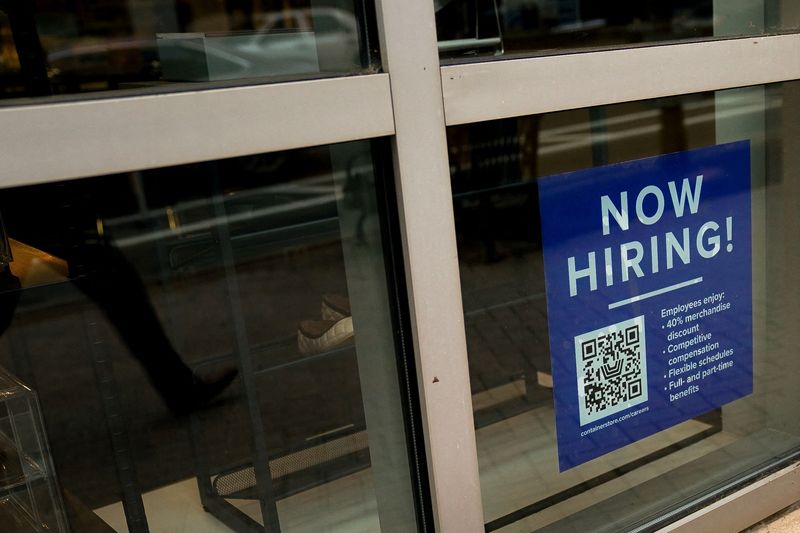By Chris Taylor
NEW YORK (Reuters) - Despite a bullish U.S. stock market and strong economy, workers axed in mass layoffs are struggling to get back on their feet.
Recent cuts include 13% of the workforce at online retailer Wayfair (NYSE:W), 20% at toy maker Hasbro (NASDAQ:HAS), 17% at digital music provider Spotify (NYSE:SPOT), and 35% at livestreaming platform Twitch.
In the new book "Bounce Back," money coach Lynnette Khalfani-Cox deals with downsizing and other life-changing issues such as debt, disability, death of a loved one, and unexpected disasters.
"I personally have been through almost all of these situations, so telling my story was like a dam breaking," the bestselling author said.
Resilience, a quality critical to success, can grow out of such challenges, whether we are emotionally worn out from the pandemic, lonely and isolated, or scrounging to survive without any savings.
Here are a few tips to bounce back better and faster from adversities.
THINK BEYOND FINANCES
First, be kind to yourself, the book's first two chapters urge, because while money is important, resilience is even more basic.
"You are more resilient when you are healthy, eating right, getting sleep and exercising," said Khalfani-Cox. "That clearer state of mind will help you make better financial choices. If you don't take care of yourself, nothing else will matter because you are going to make bad choices by default."
STRESS-TEST YOUR OWN LIFE
After the financial crisis of 2007-2008, the big banks focused more on 'stress-testing' their balance sheets: If the worst happened, how would they fare?
Individuals should do the same, Khalfani-Cox said. "Be the chief financial officer of your own world. If you or your partner lost your job, how would rent or mortgage get paid? How would childcare be covered? Could you live on one income?
Plan now, she advised, noting that few people have a strategy for such scenarios.
BUILD OUT YOUR SOCIAL NETWORK
Gilded Age novelist Horatio Alger wove rags-to-riches stories that have become prototypes for American success based on pulling yourself up by the bootstraps to climb the social ladder. The reality is that we all need others, especially in hard times. Establishing a deep and wide social network helps.
"It doesn't matter if you have been laid off from your job, or displaced from your home because of a flood," said Khalfani-Cox. "Having people in your life can make all the difference in the world. Your ability to bounce back faster is aided by having the right people in your corner."
WORK ON YOUR NEST EGG
Emergency savings are the first line of defense against any life shock. Without that, divorce, disease, damaged credit and other 'Dreaded Ds' cited in Khalfani-Cox's book can cascade into bad financial moves because you have no other choice.
"Many Americans don't even have $400 saved for an emergency, which is why when something goes wrong, they are forced to resort to plastic," she said. "Then you just dig yourself deeper and deeper. That's why building up your coffers even just a little can be enormously helpful."
DO NOT DO IT ALONE
Trying to become a "financial Hercules" on your own is a mistake, Khalfani-Cox said. Therapists, financial planners and debt-management counselors are experts who can save you valuable time and money.

Research federal, state and local government programs that can help with education, healthcare or social safety nets.
"It's important to give people that capability to bounce back," she said, citing such programs. "It's not just an individual effort alone."